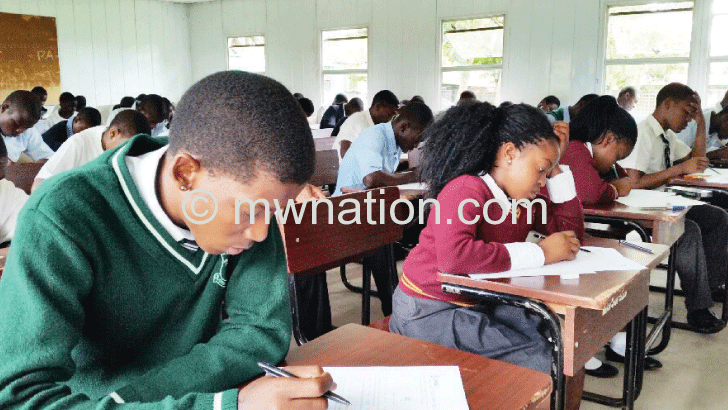Schools body blames poor MSCE results on JCE abolition
Independent Schools Association of Malawi (Isama) says the abolition of Junior Certificate of Education (JCE) examination has contributed to most students’ failure in this year’s Malawi School Certificate of Education (MSCE) exams.
Isama president Joseph Patel has since asked the Ministry of Education, Science and Technology (MoEST) to institute a commission of inquiry to investigate the importance of bringing back the ‘check point’ examinations at Form Two as well as challenges rocking the new curriculum.

Of 92 867 candidates who sat this year’s MSCE examination, only 46 771 passed, representing a 50.36 percent pass rate.
Patel said in an interview on Sunday the abolition of JCE examination has made most students to relax and not put much effort in their studies.
“The abolition of JCE has made students to relax. They only start working hard in Form Four, which is the examination class, and this becomes difficult for students to remember what they learn in all three lower classes,” he said.
Government abolished the JCE examination in 2015, arguing it was costly to the taxpayer.
Patel described JCE examination as a necessary assessment tool which helped students gauge their performance midway through secondary school.
He added: “We are currently corroborating with Ministry of Education on the importance of bringing back the Form 2 examination [JCE] to ensure that continuity of education is enhanced.”
He also blamed poor MSCE results on in adequate training on new curriculum which he said brought misunderstanding of how the curriculum would be tested by the Malawi National Examinations Board (Maneb).
According to Patel, MoEST, in conjunction with Maneb, were supposed to train the teachers on the curriculum.
Apart from having elective subjects, the 2019 MSCE examination was tested using a new curriculum which had two routes, namely science route and humanity route.
He also said some students could take more than 10 subjects during MSCE ‘as if it was JCE examination’ as some teachers did not guide them properly, adding that Maneb sent a circular to schools very late, informing the students that they could take only six subjects including English.
Patel also faulted the delay in bringing the approved textbooks on the market as having contributed to the poor performance, saying subjects such as performing arts, religion, moral education, clothing and textiles did not have textbooks.
President Peter Mutharika approved reforms in the education sector in 2015, including the abolition of JCE examinations.
But education activists, including Civil Society Education Coalition (Csec) described the abolition as premature and faulted the manner in which the reforms were implemented.
Csec executive director BenedictoKondowe reminded government that the abolition of JCE was opposed by Maneb in 2004 when experts proposed it through the Student Testing and Assessment Reform.





